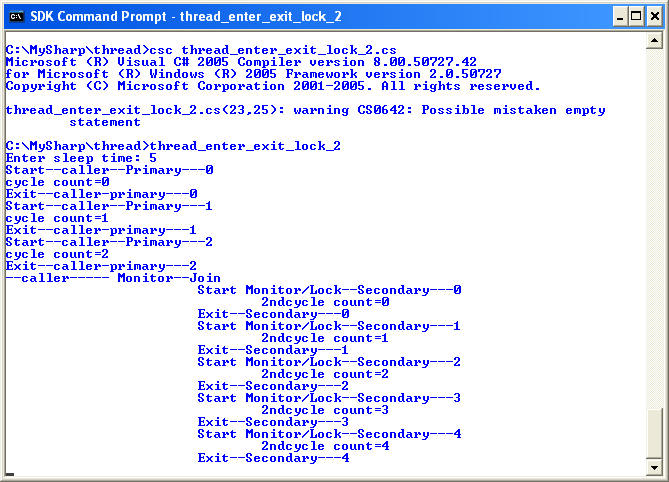The
lock statement automatically takes a copy of the reference
you specify, and calls both Enter and Exit with
it. (In the example above, and everywhere else in this article, variables
used to hold locks are declared as read-only. I have yet to come across a
good reason to change what a particular piece of code locks on.) using System;
using System.Threading;
//csc thread_enter_exit_lock.cs
public class Test
{
//public static int n = 0;
static readonly object countLock = new object();
public static int n = 0;
//public string str = "";
static void Main()
{
Console.Write("Enter sleep time: ");
string str = Console.ReadLine();
if (str!="") { n = int.Parse(str); } else { n = 0 ;}
ThreadStart job = new ThreadStart(ThreadJob);
Thread thread = new Thread(job);
thread.Start();
for (int i=0; i < 3; i++)
{
lock(countLock) {
Thread.Sleep(n);
Console.WriteLine ("Start--caller--Primary---" + i);
Monitor.Enter(countLock);
Console.WriteLine("Thread: {0} in caller : ", Thread.CurrentThread.GetHashCode());
Console.WriteLine ("cycle count={0}", i);
Console.WriteLine ("Exit--caller-primary---{0}", i);
Monitor.Exit(countLock);
}
}
Console.WriteLine ("--caller----- Monitor--Join");
thread.Join();
//Console.WriteLine ("Final count: {0}", n);
Console.ReadLine();
}
static void ThreadJob()
{
for (int i=0; i < 5; i++)
{
Thread.Sleep(n);
Console.WriteLine ("\t\t\tStart Monitor/Lock--Secondary---{0}", i);
Monitor.Enter(countLock);
Console.WriteLine("\t\t\tThread: {0} in second : ", Thread.CurrentThread.GetHashCode());
Console.WriteLine ("\t\t\t\t delgated count={0}", i);
Console.WriteLine ("\t\t\tExit--Secondary---{0}", i);
Monitor.Exit(countLock);
// Thread.Sleep(40);
}
}
}
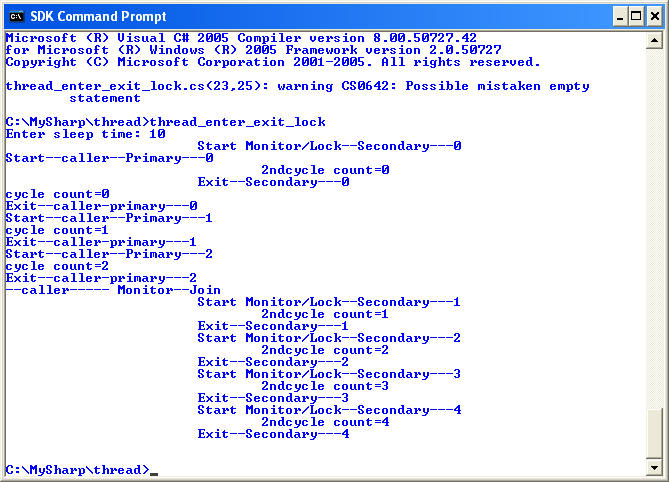
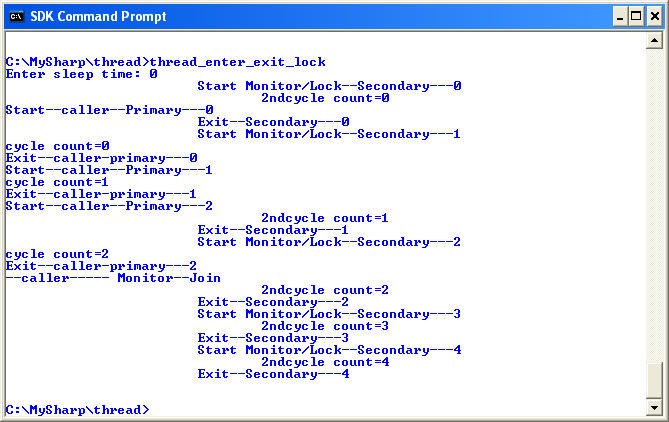
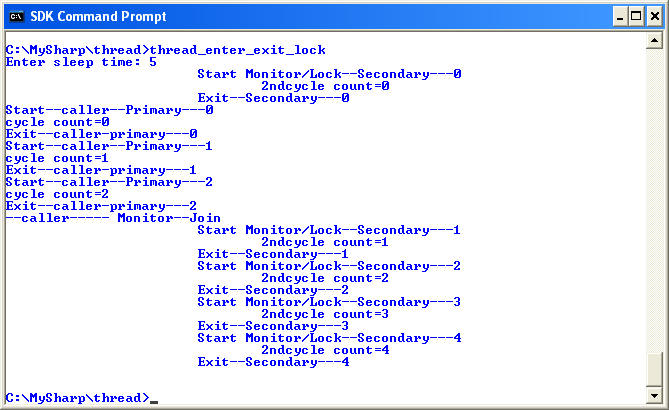
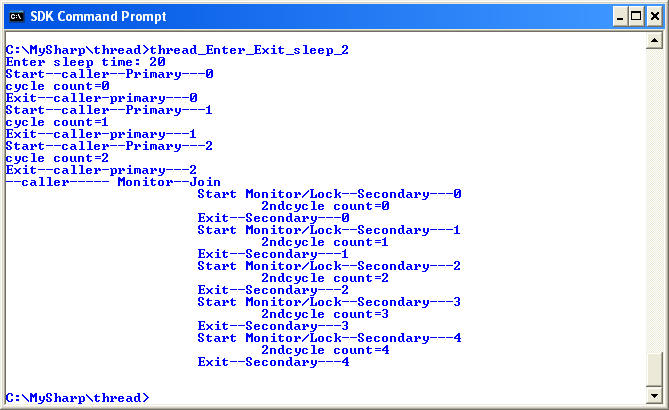
using System;
using System.Threading;
//csc thread_enter_exit_lock_2.cs
public class Test
{
//public static int n = 0;
static readonly object countLock = new object();
public static int n = 0;
//public string str = "";
static void Main()
{
Console.Write("Enter sleep time: ");
string str = Console.ReadLine();
if (str!="") { n = int.Parse(str); } else { n = 0 ;}
ThreadStart job = new ThreadStart(ThreadJob);
Thread thread = new Thread(job);
thread.Start();
//Thread.Sleep(n);
for (int i=0; i < 3; i++)
{
Console.WriteLine ("Start--caller--Primary---" + i);
Monitor.Enter(countLock);
lock(countLock);
Console.WriteLine ("cycle count={0}", i);
Console.WriteLine ("Exit--caller-primary---{0}", i);
Monitor.Exit(countLock);
}
Console.WriteLine ("--caller----- Monitor--Join");
thread.Join();
//Console.WriteLine ("Final count: {0}", n);
Console.ReadLine();
}
static void ThreadJob()
{
for (int i=0; i < 5; i++)
{
Thread.Sleep(n);
Console.WriteLine ("\t\t\tStart Monitor/Lock--Secondary---{0}", i);
Monitor.Enter(countLock);
Console.WriteLine ("\t\t\t\t2ndcycle count={0}", i);
Console.WriteLine ("\t\t\tExit--Secondary---{0}", i);
Monitor.Exit(countLock);
// Thread.Sleep(40);
}
}
}
